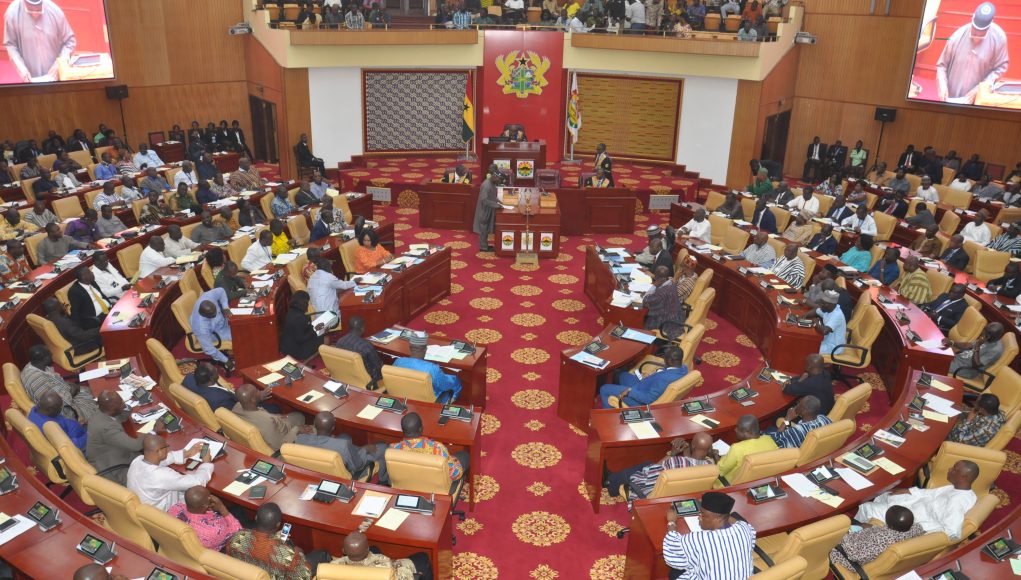Parliament approves E-levy bill
The second reading of the levy saw the bill being adopted at the reduced rate of 1.5% from the initial proposed rate of 1.75%.

Parliament has passed the Electronics Transfer Levy Bill, 2021 this afternoon, after a voice vote by a Majority composed House.
The Minority had staged a walkout in Parliament at the consideration stage of the bill during the second reading.
According to them, the E-levy bill was not listed on Parliament’s business statement for this week.
“My colleagues have listened to me, Mr. Speaker because we do not support the E-levy, the Minority group, led by me, after listening to the Majority leader, will not be associated with any further procedures on the E-levy. We will mark that, we want to be recorded that, when the E-levy was brought to the 8th Parliament, we stood together, we opposed to it, we asked for its rejection, and we said we will not support it,” the Minority leader, Haruna Iddrisu said, after which his side of the House walked out.
Considered under a certificate of urgency, the bill has now been adopted at a reduced rate of 1.5% from the initial proposed rate of 1.75%.
Now passed, the President, Nana Akufo-Addo is expected to assent to it.
The e-levy is a new tax measure introduced by the government in its 2022 Budget, expected to affect all electronic transactions, including mobile money transfers.
It has been the bone of contention since the government presented its 2022 Budget statement to the House last year.
The Finance Minister, Ken Ofori Atta, who was also present in Parliament today, March 29, 2022, has consistently maintained that the move will increase the country’s tax-to-GDP from 13% to a targeted 16% or more. It is also expected to generate about GH¢6 billion in tax revenue for the country.
But many have raised concerns, indicating that the bill risks derailing the government's efforts at financial inclusion.


